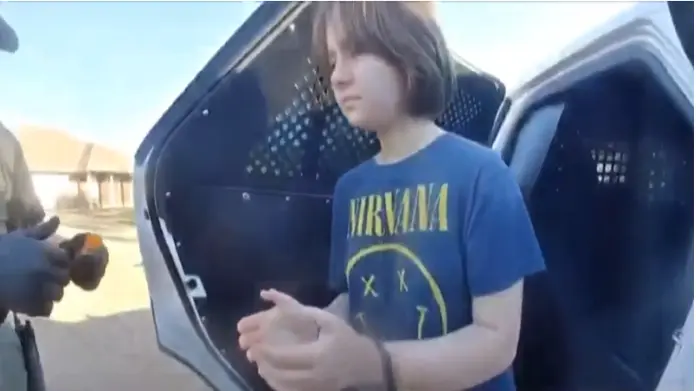The defense’s case included testimony from various witnesses aimed at establishing a context for the events leading up to the tragic incident involving Carly Gregg. One of the key witnesses was Heath Smylie, Carly’s stepfather. Under questioning, he provided insights into his relationship with Carly’s mother, Ashley Smylie, and described the family dynamics. The defense was particularly interested in Carly’s feelings toward her stepfather’s marriage to her mother.
Heath expressed that Carly seemed genuinely pleased with the union. “She appeared very happy about it all, and she was just her normal, wonderful self that day,” he recalled, aiming to portray a picture of familial harmony prior to the incident.
Another critical witness for the defense was Dr. Andrew Clark, a child psychiatrist who had diagnosed Carly with Bipolar II disorder. Dr. Clark elaborated on the complexities of managing this mental health condition, particularly in relation to antidepressant medications. He explained that the changes in Carly’s prescriptions leading up to the tragic event could have significantly impacted her mental stability.
“When treating Bipolar II with antidepressants, it can often have unintended consequences,” Dr. Clark testified. “You may not see improvement, or worse, you could push someone into a manic state. It’s like trying to navigate a boat without a keel; without stability, you’re going to zigzag all over the lake.”
This analogy aimed to illustrate the fragility of Carly’s mental state and how it might have influenced her behavior on the day of the incident. The defense hoped this testimony would foster understanding and empathy from the jury, shedding light on the complexities of mental health disorders.
Following Dr. Clark’s testimony and subsequent cross-examination by the state, the defense rested its case. Earlier, on September 17, the prosecution had concluded its arguments. The trial was set to resume on September 19, leaving many in the courtroom anxious about the next developments.
In a significant ruling, the court had recently denied a motion to transfer Carly’s case to Youth Court. The prosecution argued that Carly could not claim an insanity defense due to her voluntary intoxication, pointing to her admission of marijuana use just days before her mother was killed. This aspect of the case was crucial, as it directly affected the nature of her defense.
During an earlier court appearance in August, Carly had rejected a plea deal that would have resulted in a 40-year sentence with the Mississippi Department of Corrections (MDOC). Now facing the possibility of life imprisonment, the stakes were high, and the courtroom was filled with tension as the trial unfolded.
Carly was indicted on serious charges, including first-degree murder, attempted murder, and tampering with evidence, which painted a grim picture of the events that transpired. The shooting incident occurred on March 19, shortly after 5:00 p.m., in the 200 block of Ashton Way.

When deputies arrived, they found Heath Smylie suffering from a gunshot wound to his shoulder. He told law enforcement that he had returned home to find his wife, Ashley, dead from an apparent gunshot wound. According to Heath, his 14-year-old stepdaughter Carly was armed when he arrived.
Rankin County Sheriff Bryan Bailey later confirmed that Heath stated Carly had shot him, as well. He described how, despite being wounded, he managed to disarm Carly, who then fled into the backyard and jumped over a fence in an attempt to escape.
As the situation escalated, additional deputies and a helicopter from the Mississippi Highway Patrol were deployed to assist in the search for Carly. Just after 5:30 p.m., authorities located her nearby and took her into custody without further incident.
During her initial court appearance, Carly pleaded not guilty to the charges against her. The court set her bond at a staggering $1 million, reflecting the seriousness of the accusations. She is currently being held in the Rankin County Adult Detention Center as she awaits trial.
The courtroom atmosphere was charged with emotion, as both sides prepared to present their final arguments. The implications of the case weighed heavily on all involved, not just for Carly, but for her family and the community as well. As the trial continued, it became evident that this case would raise complex questions about mental health, family dynamics, and the responsibilities of a young person facing dire circumstances.
With the trial ongoing, the community watched closely, anticipating the outcome that would determine Carly’s fate and how it would resonate beyond the courtroom. The proceedings highlighted not only the specifics of Carly’s case but also broader societal issues surrounding youth, mental health, and the legal system’s handling of such sensitive matters. Read more…



